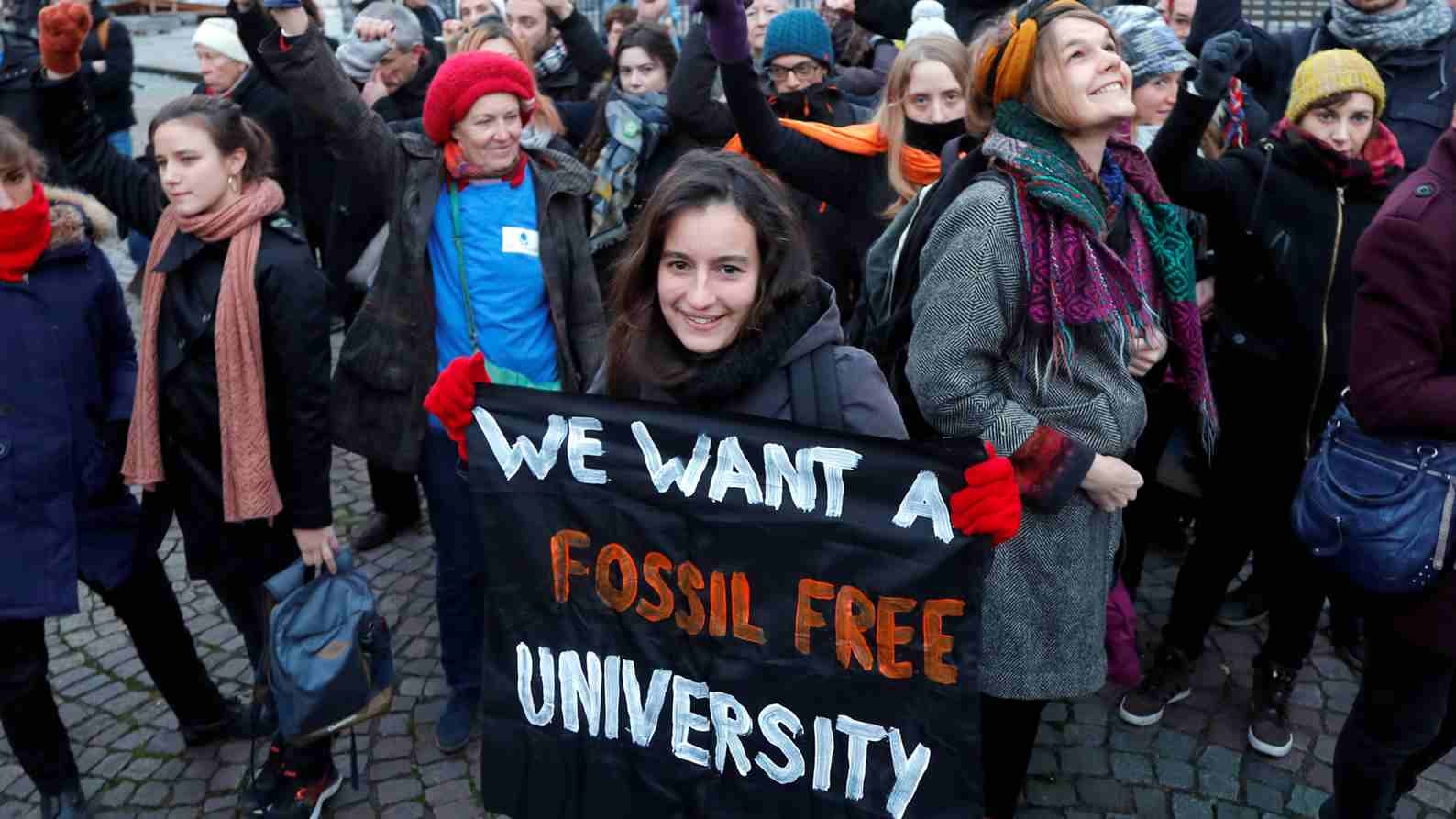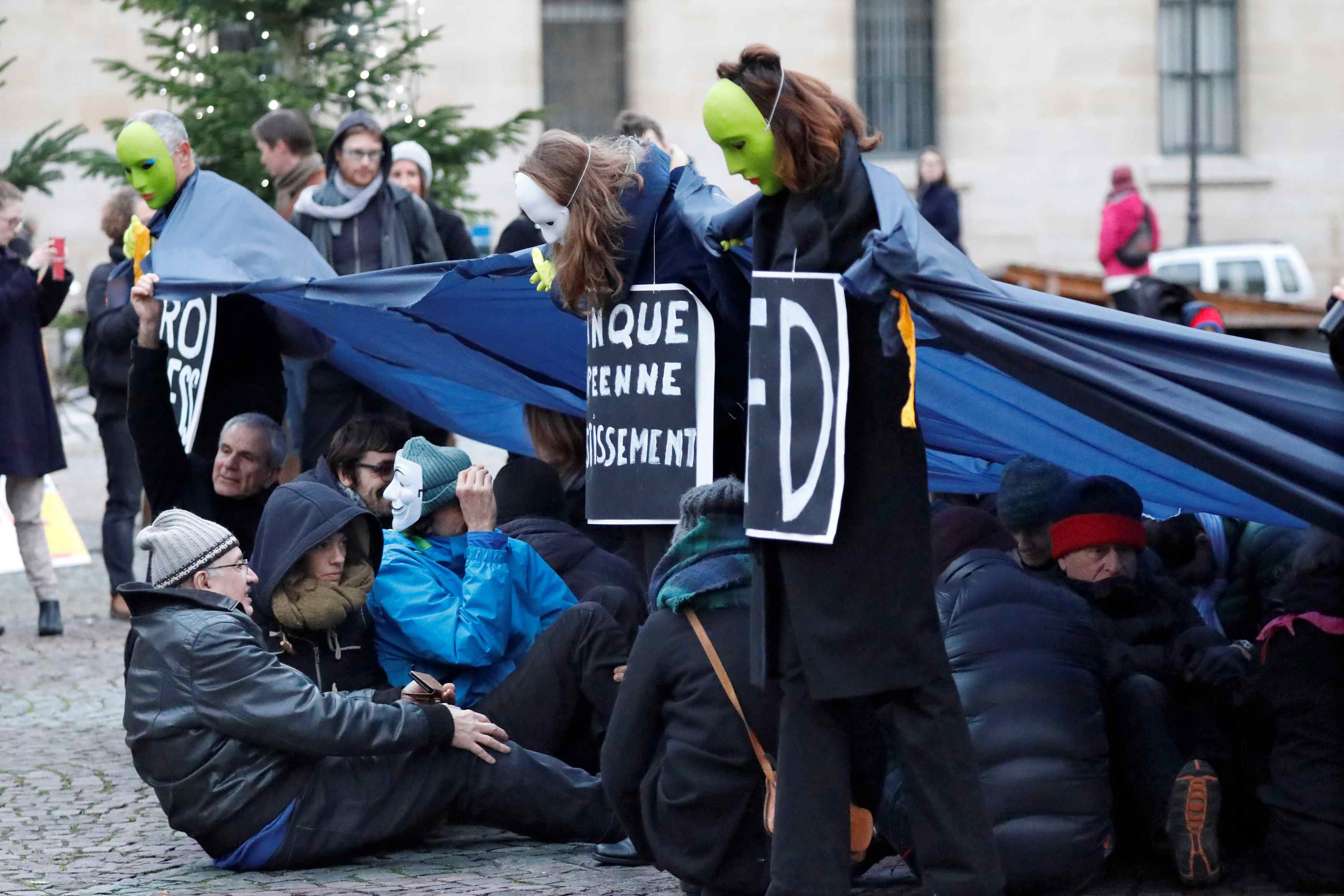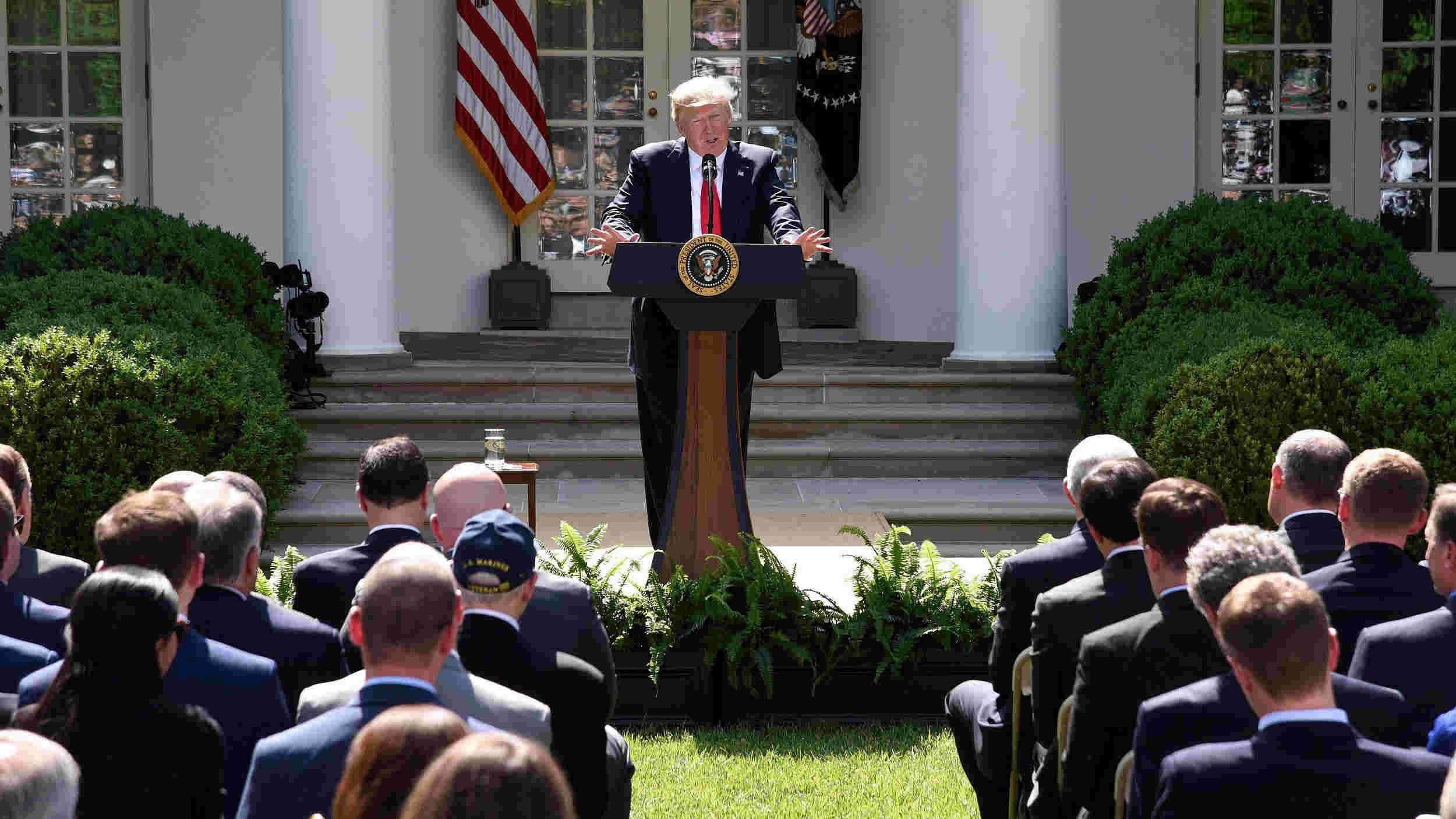
Opinions
22:50, 13-Dec-2017
Opinion: Green Nordics and Baltics skeptical of One Planet effort
Guest commentary by Juris Kaža

The Nordic and Baltic countries are looking to this week’s One Planet Summit on climate change and the Paris Climate Accords with skepticism and self-criticism. In Norway, Greenpeace and another environmentalist organization sued the government to prevent offshore drilling for oil in the Barents Sea.
In Sweden, environmental groups also accused the government of hypocrisy in signing the Paris Accords while allowing the energy company Swedegas to build a new liquefied natural gas (LNG) terminal, which the activists call “fossil gas”. The LNG production and delivery process involves a risk of releasing methane into the atmosphere, the environmentalists told Swedish media. Building an LNG terminal also goes against Sweden’s declared goal of being Europe’s first fossil-fuel-free country in the future.

Environmental activists stage a protest in support of the Paris climate accord
during the One Planet Summit in Paris, France, December 12, 2017. /Reuters Photo
Environmental activists stage a protest in support of the Paris climate accord during the One Planet Summit in Paris, France, December 12, 2017. /Reuters Photo
Latvia, one of the three Baltic countries, ranks third in Europe for using renewable energy (at 37.6 percent behind Sweden and Finland) but its energy policies have been marred by disclosures of fraud in selling green energy to the national grid at a government-mandated higher price. An investigative TV program found some of the alleged “power plants” generating high-priced green electricity to be nothing but cargo containers sitting in empty fields, at best containing a portable back-up generator running on biodiesel.
However, the main concern for the Baltic countries and their Nordic neighbors is that their relatively green economies are too small, globally, to have a noticeable positive impact on worldwide climate change, while at the same time suffering from some disturbing effects of climate change. Agrarian areas in Latvia suffered from unusual rainfall and flooding last summer, captured in television footage of a swim-suit clad young farmer declaring that his crop was largely ruined and then diving into chest deep water to swim across part of his flooded field of grain.

US President Donald Trump makes a statement on the Paris climate change accord in the Rose Garden of the White House in Washington, DC, June 1, 2017. /VCG Photo
US President Donald Trump makes a statement on the Paris climate change accord in the Rose Garden of the White House in Washington, DC, June 1, 2017. /VCG Photo
The largest economy, the US, under President Donald Trump, has pulled out of the Paris Accords, and the world’s most populous country – Chinese President Xi Jinping even spoke of his country becoming a "torch bearer" for ecological issues at the 19th National Congress of the Communist Party of China (CPC) in October. The Paris pledge is written into the most recent five-year plan that governs China's controlled economy. It introduced a mandatory limit of 58 percent coal as part of the nation's energy mix by 2020, compared with the 64 percent share it had in 2015. China has also started a transition to electric vehicles.
French President Emmanuel Macron has, at least during the One Planet Summit, tried to become the global green and climate-change stopping flag bearer. The Financial Times headlined its story on the event “Emmanuel Macron steps up fight against climate change,” but it remains to be seen how well he does. Certainly, he may get significant business personalities and “progressive” global corporations to contribute billions to turning developing countries toward renewable energy. But it is hard to see how such investments in, for instance, solar (which works well in sunny desert and jungle areas) or biofuels will make West African countries shut down their oil production or cancel offshore exploration concessions. In South America, there are already concerns about food-producing land and forests being converted to “energy farms”. The Paris Accords goals of stopping or slowing global warming look rather overambitious when one of the big global players has left the game to dig more coal. Meanwhile in a small northern European country, a farmer will dry off after a swim in his rye field and start thinking of how the soggy crop could be composted into biofuel when the flood waters recede.
(Juris Kaža is a Latvian-American freelance journalist based in Riga, Latvia. In the past, he has written for The Wall Street Journal, the International Herald Tribune and local language media. The article reflects the author's opinion, and not necessarily the views of CGTN.)

SITEMAP
Copyright © 2018 CGTN. Beijing ICP prepared NO.16065310-3
Copyright © 2018 CGTN. Beijing ICP prepared NO.16065310-3